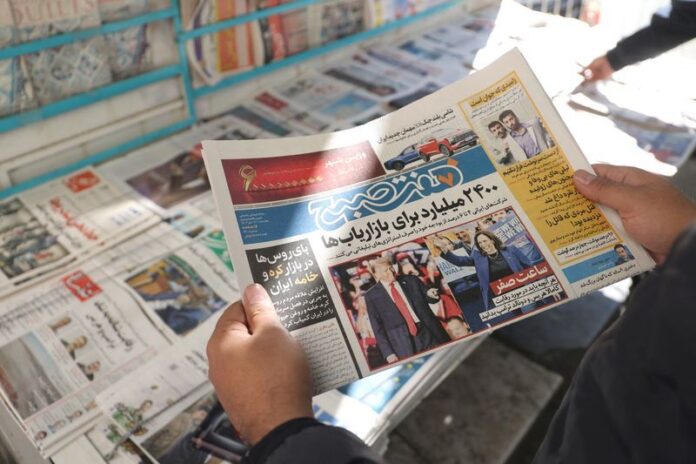DUBAI (Reuters) – Iran’s government downplayed the impact of the U.S. presidential election on its citizens’ economic conditions, following Donald Trump’s announcement of victory. On Wednesday, government spokesperson Fatemeh Mohajerani reassured that the results of the U.S. election would not disrupt daily life in Iran. “The U.S. elections are not really our concern. Our policies remain stable and are not influenced by changes in individual leadership. We anticipated different scenarios, and there will be no shift in the livelihood of our people,” Mohajerani stated, according to the semi-official Tasnim news agency.
Despite Mohajerani’s assurances, there is growing speculation among Arab and Western officials that Trump could revive his hardline “maximum pressure policy” against Iran. This could include re-imposing severe sanctions targeting Iran’s oil exports and potentially supporting Israel in conducting military actions, such as strikes on nuclear facilities and “targeted assassinations.” The renewed sanctions would likely aim to cripple Iran’s economy further, which could place additional pressure on the nation’s already struggling economy.
During his first term in office, Trump exited the 2015 nuclear agreement between Iran and major world powers. This agreement had been designed to limit Iran’s nuclear activities in return for economic relief, fostering a period of cautious optimism within Iran’s economy. However, Trump’s decision to abandon the deal and reinstate strict sanctions in 2018 dramatically impacted the Iranian economy. The return of these sanctions slashed Iran’s oil exports, a vital source of revenue for the government, and set the stage for significant economic hardship.
With the resumption of U.S. sanctions, Iran faced dwindling revenues that forced the government to make difficult economic decisions. These included raising taxes and running substantial budget deficits, policies that have fueled inflation and exacerbated public discontent. The inflation rate in Iran has hovered around 40% annually, squeezing the purchasing power of ordinary Iranians and contributing to social and economic tension.
Amid concerns of a repeat of Trump’s “maximum pressure” approach, Iran’s national currency, the rial, has continued to weaken. On Wednesday, following the news of Trump’s claimed victory, the rial hit a historic low, trading at 700,000 rials per U.S. dollar on the open market, as tracked by the Iranian currency monitoring site Bonbast.com. This stark decline in currency value reflects market fears about the potential for heightened economic sanctions and increased geopolitical tensions should Trump proceed with aggressive policies similar to those during his first presidency.
The specter of a more confrontational U.S.-Iran relationship under Trump’s renewed leadership has raised concerns both within Iran and across the region. While officials in Tehran maintain that they are prepared for various scenarios and have adapted their policies to mitigate external pressures, the reality on the ground points to significant challenges. The sanctions that targeted oil exports previously led to reduced public services and placed immense pressure on the government to find alternative revenue sources, such as imposing higher taxes and cutting subsidies, moves that proved unpopular among the public.
For Iran, maintaining resilience in the face of potential renewed U.S. policies will likely require navigating a delicate balance between strengthening economic self-reliance and addressing internal discontent. Mohajerani’s assertion that the election will not affect daily life may be aimed at projecting confidence to domestic audiences and reassuring them that the government is capable of maintaining stability even under renewed external pressure.
The potential for escalated tensions, however, has regional implications beyond Iran. Should Trump reinstate a strategy akin to his previous “maximum pressure” campaign, regional allies of the U.S., such as Israel and certain Gulf states, may find themselves aligned with more aggressive policies toward Tehran. This could include direct action targeting Iran’s nuclear facilities or support for covert operations.
As uncertainty looms, Iran’s leadership continues to emphasize its preparedness and the measures it has already implemented to withstand external challenges. Yet, with the rial’s devaluation and memories of the economic strife under prior sanctions still fresh, the path forward may not be without considerable difficulty for the nation. The outcome of Trump’s return could have significant implications not just for U.S.-Iran relations, but for the economic and political dynamics within Iran itself and across the broader Middle East.


